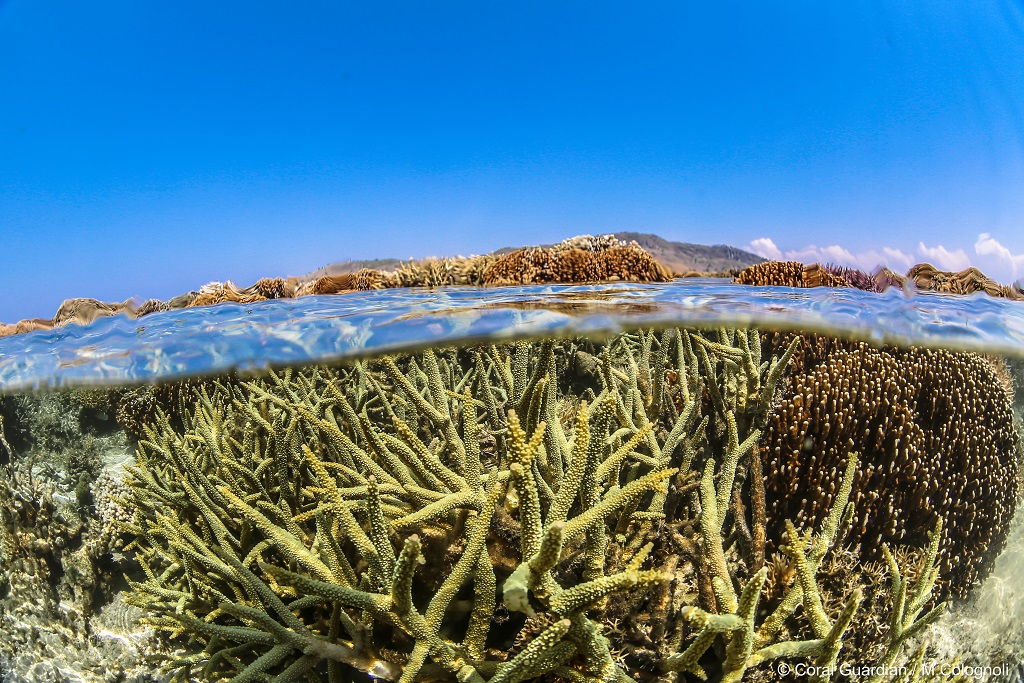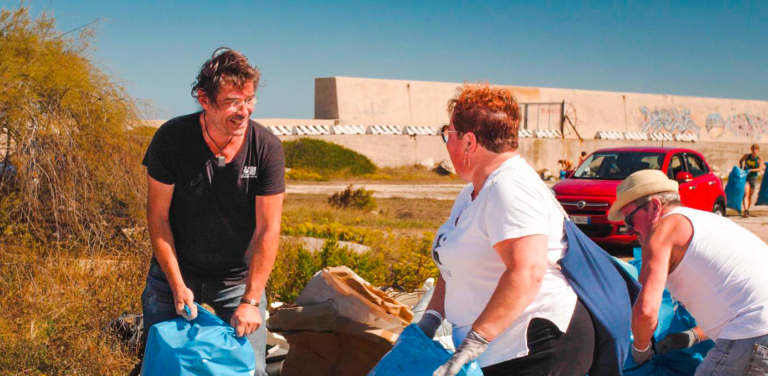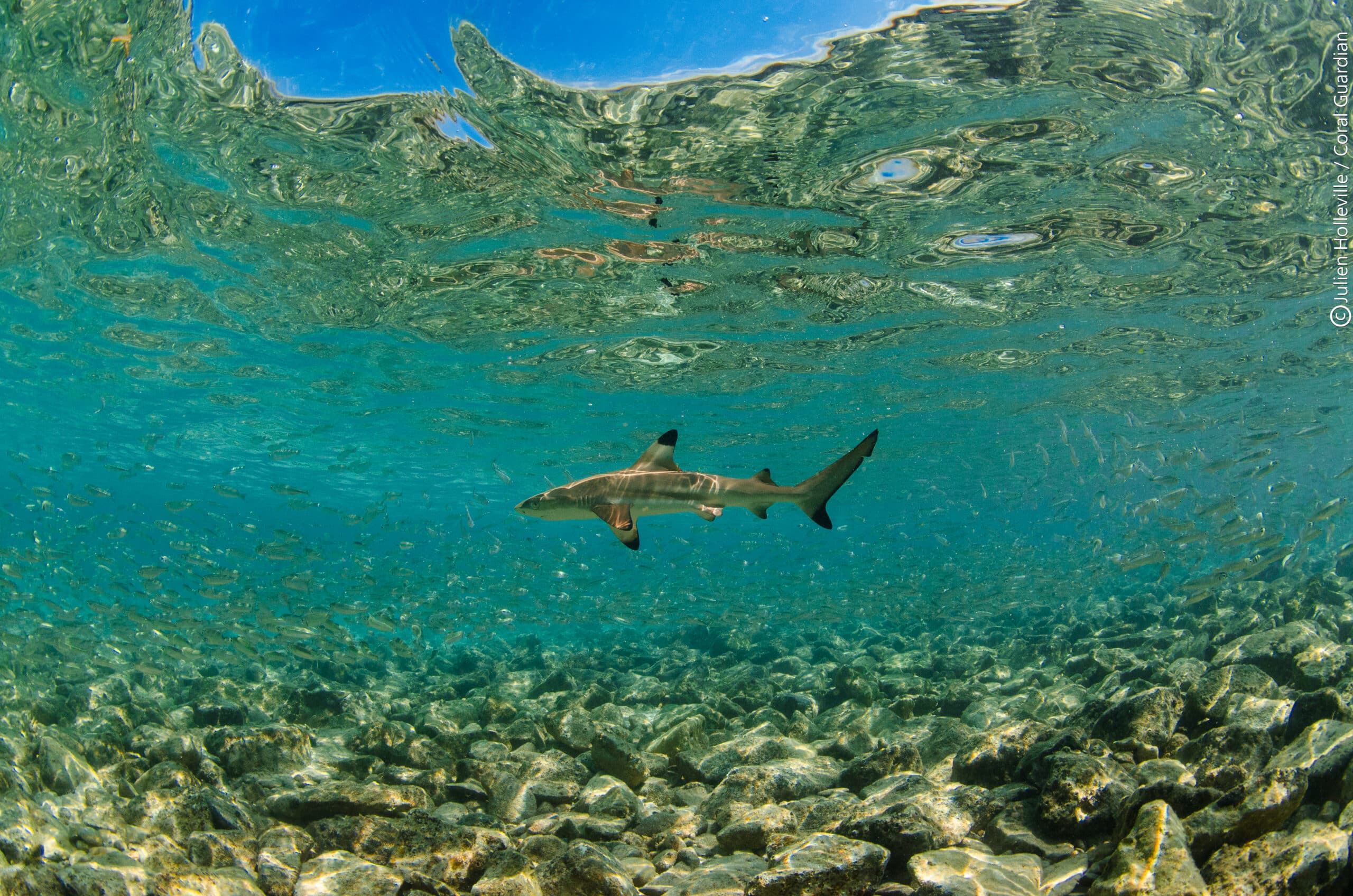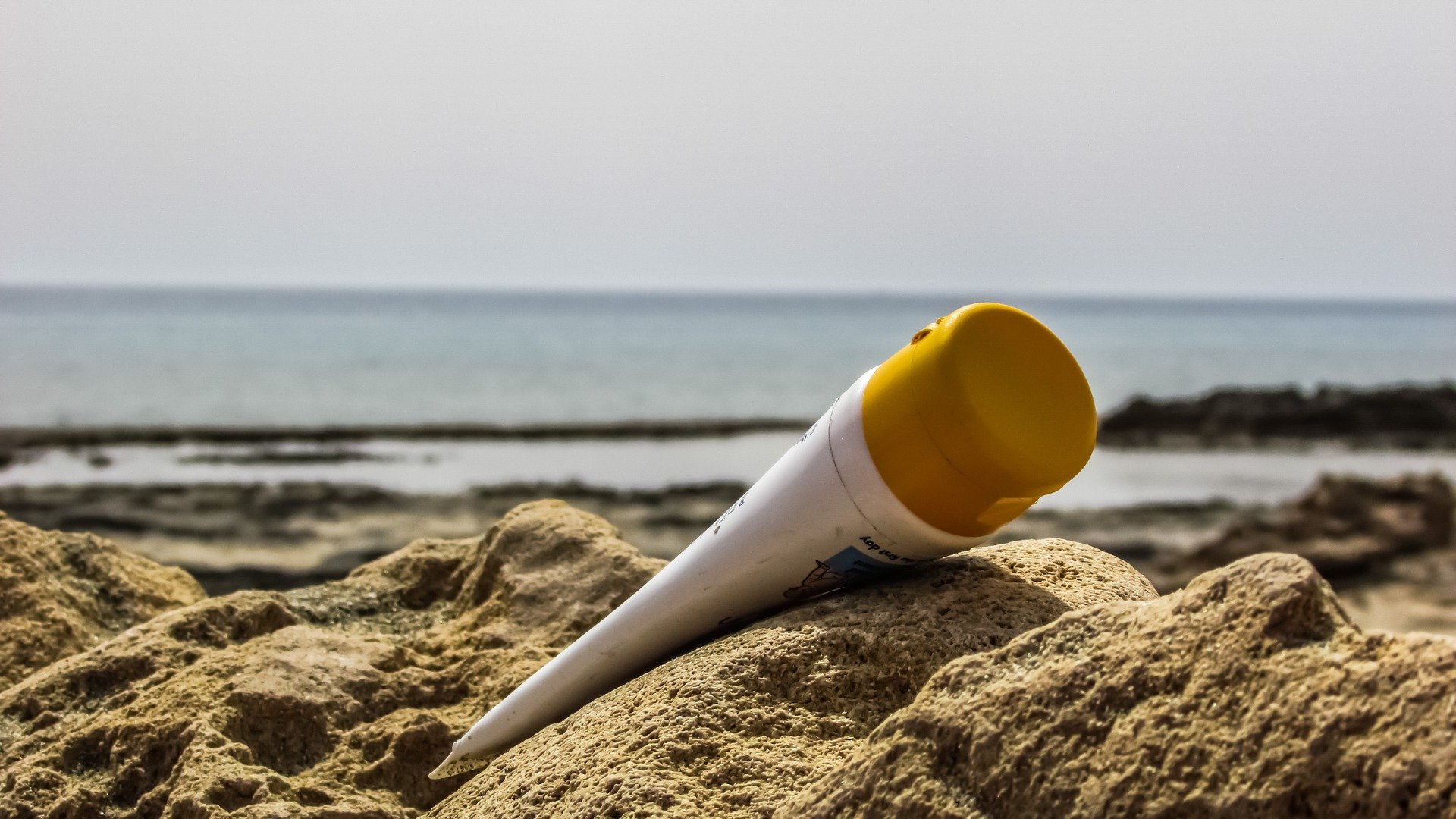Coral Reef Protection: where do we stand?

Wednesday 4 July 2018 saw the handover of the presidency of the ICRI (International Coral Reef Initiative) secretariat from France to the Principality of Monaco, Australia and Indonesia. An opportunity to review the past two years, but also to set objectives for the future. We’ve been invited, and this is our return.
A global responsibility
Bruno David, President of the National Museum of Natural History, began his opening speech with this observation: “The ocean is 96% of the volume offered to life on earth”.
All members present at the Event agreed that coral reefs, which represent 30% of the ocean’s biodiversity, are subject to multiple human pressures ranging from global warming to local pressures such as destructive fishing or mass tourism. Although some reefs can recover from repeated bleaching episodes and show good results, half of the coral reefs are still at risk of disappearing by 2030, if nothing is done.
Serge Planes, director of the CRIOBE and research director at the CNRS, recalls the ecological importance of these ecosystems: “1 km of coral reefs is equivalent to the biodiversity concentration of all the coastal coasts of metropolitan France”.
France, an essential role
France, which has the second largest maritime domain in the world after the United States, hosts about 10% of the world’s coral reefs.
Xavier Sticker, French Ambassador Delegate for the Environment, reports on the subjects on which the country has made progress:
- Funding: Among other things, ICRI helped 5 marine conservation projects to launch and participated in the communication campaigns for IYOR 2018. ICRI also participated in the preparation of a report on innovations in coral financing.
- Good practices: a resolution against the use of plastic microbeads in cosmetics has been voted, the regulations on dredging have been strengthened (through the mobilization of Coral Guardian) and a report on sunscreens has been published.
Brune Poirson, Secretary of State to Nicolas Hulot, continues by assuring that France will not stop there. She cites the biodiversity plan, presented the same day:
- “Thanks to the action of overseas communities, we aim to protect 100% of French coral reefs at sea by 2025, with an intermediate target of 75% by 2021. In particular, we will support and accompany the deployment of the Coral Sea Natural Park, led by the Government of New Caledonia.”
- Some single-use plastic products, such as cotton buds or straws, will be banned by 2020.
Finally, much hope also rests on the IUCN World Conservation Congress to be held in Marseille in mid-2020, which should be the equivalent of COP21 in terms of biodiversity.
Still a lot of work for the successor countries to the ICRI presidency
Australia faces an important challenge: the protection of the Great Barrier Reef, which is today one of the most threatened. It is to be hoped that the $500 million released by the country will be enough to protect it.
Monaco, for its part, wants the “Coral Reef Life Declaration” to be signed by more countries. The United Kingdom has recently joined the movement.
Indonesia is already suffering the consequences of the degradation of the reefs because its population, for the coastal majority, depends directly on them to live. Climate change is not its only enemy and the country will also have to try to eradicate dynamite and cyanide fishing.
The Our Ocean Conference which takes place in Bali on 29 and 30 October 2018 will be another opportunity for its 3 countries to join forces in order to put the protection of coral reefs at the forefront of the international scene.
As Prince Albert II of Monaco reminded us, man is the main threat to coral reefs. It is then up to him to propose solutions, and only close cooperation between countries will make the difference.
Ces articles pourraient vous intéresser

Sponsor spotlight : Guillaume from 3EConcept
Tell us a bit about yourself 🙂 Rather in responsible mode, I am an enthusiastic and persistent person. I founded the 3E concept group in…
21 December 2022
Sponsor Spotlight : Corinna Bohle of DAVOSA
Tell us a bit about yourself 🙂 Hi, my name is Corinna Bohle. I‘m the managing director and owner of DAVOSA, an independent Swiss watch brand…
29 November 2022
Unexpected fish biodiversity on coral reefs unraveled by environmental DNA
Reef fish: an exceptional biodiversity Coral reefs are often referred to as the tropical rainforests of the seas due to their staggering richness and…
22 June 2022
Are mineral UV filters used in sunscreens less harmful to coral reefs?
Swimmers can choose sunscreens with chemical (organic) UV filters or mineral (inorganic) UV filters. The latter are natural particles, either zinc oxide (ZnO) or titanium…
4 March 2021
